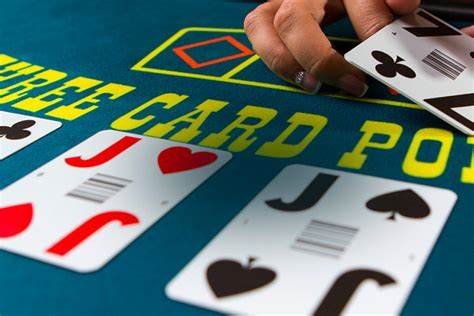Poker is a popular game of skill, strategy, and luck. For beginners, mastering the basics can significantly improve your chances of winning. Whether you’re playing Texas Hold’em or another variant, understanding essential poker strategies is crucial. In this article, we’ll explore key strategies that every beginner should know.
Learn the Hand Rankings
Before you dive into strategy, understand poker hand rankings. This knowledge is fundamental to playing the game. The highest-ranking hand is the Royal Flush, followed by Straight Flush, Four of a Kind, Full House, and so on. Knowing these rankings helps you evaluate your hand and make better decisions during the game.
Play Tight and Aggressive
As a beginner, focus on playing tight and aggressive. This means you should only play strong hands and bet aggressively when you have a good hand. Avoid playing too many hands, as this can lead to losses. Playing tight helps you conserve chips, while aggressive betting puts pressure on your opponents and maximizes your winnings.
Understand Position at the Table
Position is a critical aspect of poker strategy. Your position determines when you act in the betting rounds. Players who act later have more information about their opponents’ actions. Use this advantage to make better decisions. In general, play more aggressively from a later position and be more cautious from an early position.
Know When to Fold
One of the most important skills in poker is knowing when to fold. Don’t be afraid to fold if your hand is weak or if you believe your opponent has a stronger hand. Many beginners struggle with this because they want to see the hand through. However, folding when necessary helps you avoid losing more chips.
Practice Bankroll Management
Effective bankroll management is crucial for long-term success in poker. Set a budget for how much money you’re willing to lose and stick to it. Avoid risking more than you can afford to lose. Good bankroll management ensures that you can play poker over the long term without facing financial difficulties.

Use Betting Patterns to Your Advantage
Observing your opponents’ betting patterns can provide valuable information. Pay attention to how they bet with different hands. Are they aggressive or passive? Do they bet a lot or just when they have strong hands? Use this information to adjust your strategy and make more informed decisions.
Bluff Wisely
Bluffing is a key part of poker, but it should be used wisely. Successful bluffing requires reading your opponents and understanding the right moments to bluff. Avoid bluffing too often, as experienced players will catch on. Bluff only when the situation is favorable and when you believe you can convincingly represent a strong hand.
Learn the Odds and Probabilities
Understanding poker odds and probabilities helps you make better decisions. Learn the odds of hitting a particular hand or drawing certain cards. This knowledge allows you to assess whether it’s worth continuing with your hand or folding. Calculating odds helps you play more strategically and improve your overall game.
Adapt to Your Opponents
Each player at the table has a unique style and approach. Adapt your strategy based on your opponents’ behaviors and tendencies. If you notice that an opponent is aggressive, you might want to be more cautious. Conversely, if they are passive, you can take advantage by betting more aggressively.
Keep Your Emotions in Check
Poker can be an emotional game, but managing your emotions is crucial. Avoid letting frustration or excitement affect your decisions. Stay focused and make rational choices based on the information you have. Emotional control helps you maintain a clear mindset and make better strategic decisions.
Final Thoughts
Mastering poker requires practice and patience. By understanding essential strategies, you can improve your game and increase your chances of winning. Learn hand rankings, play tight and aggressive, understand position, and practice good bankroll management. Observing betting patterns, bluffing wisely, and learning odds are also crucial. Adapting to opponents and keeping your emotions in check are key to long-term success. With these essential poker strategies, you’ll be well on your way to becoming a more confident and skilled player.











